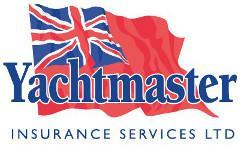The 2013 season is underway but at the time of writing, the temperature is still struggling to correspond with what we expect at this time of year. However, we have enjoyed some good races in our Punt so far this year and not too many accidents, locally anyway!
As most people have reservations about having to pay insurance premiums, I thought it might be useful to comment on where the premiums get spent. Firstly there are the admin and salary costs of running the office – these are inevitable, of course, but have to be managed carefully.
Then there are the claims costs. You will probably have heard of the spates of outboard motor thefts that occur fairly regularly and seem to be carried out by organised thieves with the motors probably going abroad for onward sale. But watch out, some are sold in the UK and if you buy an engine that has been stolen, it will never become yours as it will remain the property of the original owner or his insurers. The police have had some success in recovering outboard motors but unfortunately from an insurer’s point of view, there is often associated damage such as severed cables and re-installation costs to meet.
Then there are the major claims; in recent years we have seen the loss of a substantial yacht on passage from the Mediterranean to the UK when an electrical fire started and gained a hold before it could be extinguished resulting in the abandonment and total loss of the vessel.
We have also seen the abandonment of a vessel in the Bay of Biscay after severe weather disabled the vessel to the extent that the lives of those on board were in danger. Some underwriters will now only cover yachts crossing the Bay during the period May to September as outside of this period severe weather may cause considerable problems.
Substantial loss can also result from salvage costs. From a problem such as dragging an anchor or breaking a mooring, if the situation cannot be rectified or is not recognised in time, and a vessel ends up aground, there can be substantial cost in getting her re-floated especially, it seems, in foreign areas. With many of the larger cruising yachts having values in the £50,000 to £150,000 range, a salvage award of perhaps £25,000 can result, depending on the type of salvage vessel used, and this is in addition to any repairs that may be needed.
The whole principle of insurance is that the “small” premium contributions of the many are used to meet the large costs of the few unfortunate ones. The more careful we can all be with our vessels, and our passengers, the greater chance there is of keeping the premiums at the “small” level.
David Long - 11/6/2013.
Return to Media Publications & Advice.

